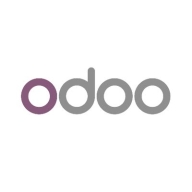

Salesforce Sales Cloud and Odoo are both prominent players in the CRM space. Salesforce seems to have the upper hand in large, complex sales processes due to its extensive functionalities and robust ecosystem, whereas Odoo offers a cost-effective and user-friendly solution for small to mid-sized businesses.
Features: Salesforce Sales Cloud provides comprehensive CRM functionalities with extensive customization, robust integrations, and a broad ecosystem of applications. It is ideal for complex sales processes, emphasizing automation and reporting. Odoo offers a modular open-source platform that caters to various business needs beyond CRM with seamless module integration and cost-effectiveness.
Room for Improvement: Salesforce Sales Cloud faces challenges such as complexity, high costs, and integration issues with additional SaaS and legacy systems. Report management without additional purchases and a steep learning curve are also noted. Odoo users seek improvements in reporting capabilities, API support, and automation tools. Some Odoo features require deeper technical expertise.
Ease of Deployment and Customer Service: Salesforce Sales Cloud offers deployment on public, private, and hybrid clouds, with strong community support, although official support varies with the subscription level. Odoo provides flexible deployment options with satisfactory support, yet enhancements in technical support responsiveness and regional presence are desired.
Pricing and ROI: Salesforce Sales Cloud is considered expensive, with pricing influenced by user count and feature requirements but offers significant ROI for large organizations. Odoo is more cost-effective, appealing to smaller businesses with competitive modular pricing and lower licensing fees, making it an affordable choice while maintaining essential features.
Currently, I manage those tasks independently, which is a significant cost-saving measure for my small business.
Technical support from Odoo is available and eager to help.
I rate the scalability of Odoo as eight to nine out of ten.
Salesforce is highly scalable and operates efficiently.
Stability is very important because any software that supports your business must be available consistently.
I have not experienced any degradation in Salesforce's performance.
Odoo's documentation needs improvement, as there are areas that are not well-documented.
Compared to AWS, it is slower, which could be a hindrance.
The pricing for Odoo is affordable, with the solution being significantly cheaper than its competitors like SAP, Microsoft, and Oracle.
The CRM and sales tools are highly effective, with customizable proposal templates aiding client interactions.
Its easy-to-navigate interface aids in delivering clear vision and organization, especially for sales and business management.


Odoo is a suite of open source business apps that cover all your company needs: CRM, eCommerce, accounting, inventory, point of sale, project management, etc. Odoo's unique value proposition is to be at the same time very easy to use and fully integrated.
Salesforce Sales Cloud is a comprehensive CRM platform designed for efficient lead management, sales forecasting, and customer engagement, offering extensive customization and cloud-based accessibility.
Aimed at enhancing business efficiency, Salesforce Sales Cloud supports core business processes like CRM, lead and opportunity management, sales forecasting, and customer engagement. Its robust integration capabilities allow seamless connectivity with ERP systems and various applications. The platform offers pipeline tracking, process automation, and advanced sales cycle management. Users appreciate its cloud-based accessibility, allowing teams to operate remotely and manage sales operations effectively. However, users highlight concerns about its complexity, cost, and the need for a more intuitive interface.
What features does Salesforce Sales Cloud offer?Salesforce Sales Cloud is widely implemented across industries such as finance, healthcare, and retail, supporting sales teams in tracking and managing sales operations. Its use extends to reporting, collaboration, and enhancing client interactions, allowing companies to tailor Salesforce to meet industry-specific requirements efficiently.
We monitor all CRM reviews to prevent fraudulent reviews and keep review quality high. We do not post reviews by company employees or direct competitors. We validate each review for authenticity via cross-reference with LinkedIn, and personal follow-up with the reviewer when necessary.